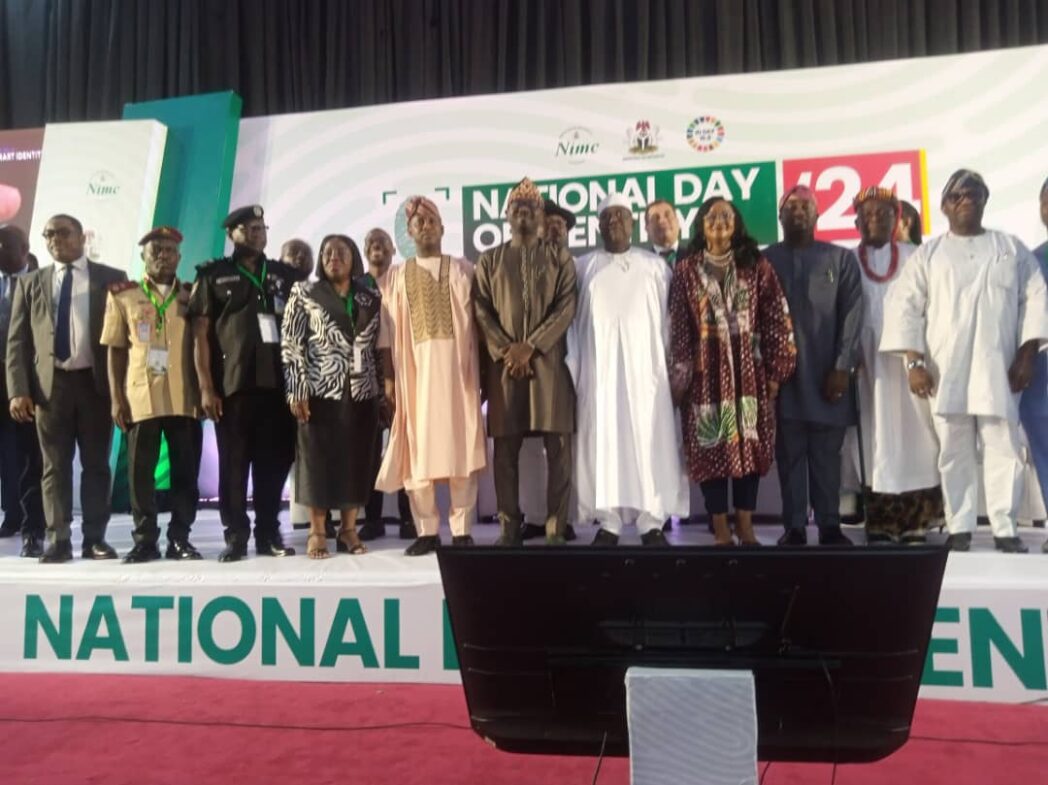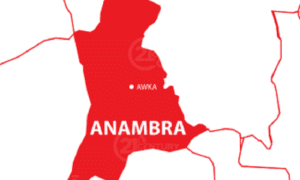


18,000 students already received payments through loans initiative – NIMC DG
By Matthew Denis
The Director General of National Identity Management Commission (NIMC), Engr. Abisoye Coker-Odusote HS disclosed that a total of 18,000 students have already received payments through the students loan initiative.
She made the disclosure during the 6th edition of our National Identity Day held in Abuja on Monday.
Speaking on the themed, “Digital Public Infrastructure – Enabling Access to Services in Nigeria”, the DG said “We commemorate with the globe for recognizing September 16th to mark National Identity Day.The importance of identity and its responsible use for inclusion, protection and empowerment.
“I must say we are on the right path and key strides have been made through collaboration and partnerships with government agencies and private sector players – linking of NINs and phone numbers with the telecommunication companies, NIN and Bank Verification Number (BVN) harmonisation with financial institutions to facilitate digital payments, digital money, digital identity and digital processes, amongst others.
“Furthermore, the Student Loan Initiative showcases how DPI can eliminate financial barriers to education. By collaborating with 257 institutions, 332,715 students have been registered for loans, and over 18,000 students have already received payments through the initiative.”
Engr. Abisoye who is also the CEO of the Commission stressed that tith the Federal Government investments in social and palliative programmes to cushion the impact of the ongoing economic reforms on citizens, especially on the most vulnerable members of our society, the focus of this event around a strong digital public infrastructure (DPI) to support the government’s initiatives is timely and relevant.
” I would like to shed light on the concept of DPI, the role NIMC plays as a key stakeholder, and the importance of DPI to facilitate seamless access to public and private services across different sectors such as financial, healthcare and agriculture, amongst others.
“DPI refers to a digital network, which is typically built in the public sector, that enables countries to safely and efficiently deliver economic opportunities and social services to citizens and legal residents. DPI has three (3) key building blocks – identification, data exchange and payments.
According to her NIMC is at the fore of providing foundational identity to all citizens and legal residents in Nigeria, the role of NIMC to deploy an identity system, which will provide a way for individuals to identify who they are and authenticate themselves when accessing public services, in building Nigeria’s DPI cannot be overemphasised.
“Guided by three (3) attributes – open, interoperability and standards – DPI has shown to be scalable and encourage innovation, which have seen to accelerate financial inclusion and transform the lives of citizens by addressing challenges of physical distance and documentation as well as high cost of transactions, which are typically faced by individuals whilst accessing public sector services.
The DG emphasized Implementation of DPI also allows the government to deliver services is an efficient and cost-effective manner. Bringing it back home, the role of DPI has become indispensable to Nigeria’s economic development, as it offers a framework that connects citizens to essential services such as social welfare, healthcare, education, and financial inclusion.
“At the forefront of this transformation is NIMC, responsible for the National Identification Number (NIN), which has enrolled over 110 million Nigerians. This provides a unique opportunity for the other two (2) pillars of the DPI – data exchange and payment – to be layered on foundational identity for its effective development and adoption.
“Our journey with DPI reflects its similarity to physical infrastructure, requiring it to be open, interoperable and guided by set of governance rules and as such the public and private sectors need to intensify their partnership to drive innovation within the digital identity space and reap the benefits of DPI. International collaboration is also essential in integrating innovative solutions and leveraging global expertise, ensuring Nigeria’s DPI remains competitive. This strategy will enhance service delivery, boost our social investment programs, and position Nigeria as a global player in the digital economy.
“As we mark the International Identity Day, let us unite with a renewed sense of hope and purpose in advancing our digital public infrastructure to enhance public services delivery, healthcare, entrepreneurship, healthcare, gender equality, amongst others. Together, we can build a more resilient and inclusive, economy.”



